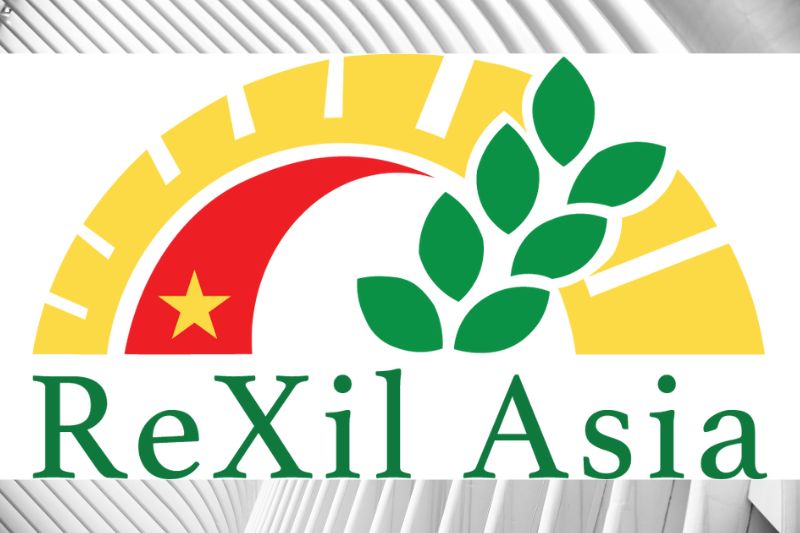Writen by Ms Poonthalir Veeran,Technical Agriculture Director, ReXil Asia JSC
Agriculture remains the backbone of food security and economic sustainability in both Europe and Malaysia. Recently, the European Commission unveiled its policy framework, A Vision for Agriculture and Food: Shaping Together an Attractive Farming and Agri-Food Sector for Future Generations, which aims to modernise the sector, ensure food security, and make farming more attractive to younger generations. Similarly, Malaysia’s National Agrofood Policy 2021-2030 (NAP 2.0) is focused on transforming the agrifood sector into a high-tech, resilient, and sustainable industry.
Sustainability, Modernisation, and Food Security
Sustainability is at the core of both Europe’s and Malaysia’s agricultural visions. The European Commission’s approach focuses on incentivising rather than penalising farmers for adopting greener practices. Their strategy includes promoting carbon farming, bioenergy production, organic and agroecological practices, and reducing reliance on harmful chemicals. Additionally, the Commission emphasises the importance of biopesticides, new genomic techniques, and feed additives to enhance the sustainability of livestock farming. These measures aim to balance food production with environmental conservation.
Malaysia’s NAP 2.0, on the other hand, integrates sustainability by promoting smart agriculture and sustainable farming practices. The policy aims to reduce environmental degradation through the implementation of modern irrigation systems, the reduction of chemical dependency, and the enhancement of agroecological practices. Emphasis is also placed on strengthening the agrifood value chain to minimise food waste and improve overall efficiency. The European strategy highlights the need to reduce administrative burdens on farmers, integrate digital and precision farming, and increase financial support for young farmers. Malaysia’s approach is similar, with a strong focus on research, development, commercialisation, and innovation (R&D&C&I). However, while the EU prioritises streamlined regulations, Malaysia emphasises talent development and skilled workforce training to support agricultural transformation.
Food security remains a primary objective for both policies. The EU aims to increase self-sufficiency by reducing dependency on imports, enforcing stricter trade reciprocity, and boosting domestic food and feed production. In contrast, Malaysia’s food security strategy focuses on ensuring a sufficient food supply, improving accessibility, and increasing the income of food producers.
Lessons Malaysia Can Learn from the European Commission’s Approach
While Malaysia’s NAP 2.0 aligns with many aspects of Europe’s vision, there are valuable lessons that can be adopted to enhance the country’s agricultural sector. One significant takeaway is Europe’s commitment to making farming more attractive and profitable. The European Commission acknowledges that, without a new generation of farmers, the industry will decline. Therefore, it proposes better pay, fewer administrative burdens, and new income streams such as carbon farming and bioeconomy projects. Malaysia can benefit from adopting similar strategies to ensure a steady influx of young farmers who view agriculture as a viable career path rather than a last resort.
Another key lesson is Europe’s focus on fair profit distribution across the food supply chain. The Commission actively addresses power imbalances by regulating unfair trading practices and ensuring that farmers receive fair compensation. Malaysia can strengthen its policies by implementing stricter measures to prevent food producers from being exploited by middlemen and retailers. Ensuring a fairer price distribution would help small-scale farmers increase their earnings and sustain their livelihoods.
Furthermore, Malaysia can take inspiration from Europe’s structured incentives for sustainability. While NAP 2.0 encourages sustainable practices, the EU goes a step further by offering targeted financial incentives to farmers who adopt eco-friendly technologies. If Malaysia introduces similar reward-based initiatives, farmers may be more inclined to invest in sustainable solutions.
Mitigating Global Food Supply Chain Challenges
Both the EU and Malaysia recognise the importance of strengthening domestic food production while managing the challenges posed by global food supply chains. The European Commission has introduced a trade reciprocity plan to ensure that imported agricultural products meet the same environmental and safety standards as EU-produced goods. Additionally, it is working to improve border checks to prevent the entry of banned substances into the EU market. While these protectionist measures may invite trade tensions, their aim is to safeguard European farmers and consumers.
Malaysia, on the other hand, faces unique challenges in its agricultural supply chain, including a heavy reliance on food imports and fluctuating global commodity prices. NAP 2.0 emphasises improving domestic self-sufficiency through increased investment in aggrotech, better land use policies, and strengthening local food production. However, Malaysia’s approach is less focused on trade barriers and more on enhancing the efficiency of its agrifood sector.
One major issue for both regions is ensuring resilience against external shocks such as climate change and geopolitical conflicts. The EU’s approach includes diversifying supply sources and enhancing food stockpiles, while Malaysia is investing in research and development to create climate-resilient crop varieties and efficient irrigation systems. Although Malaysia has made progress, adopting Europe’s strategies for enforcing stronger domestic production policies and reducing reliance on imports could further enhance food security.










